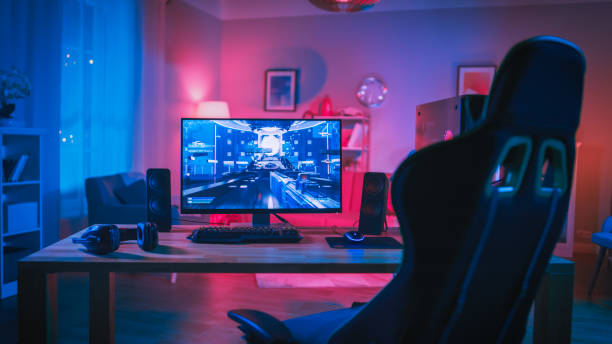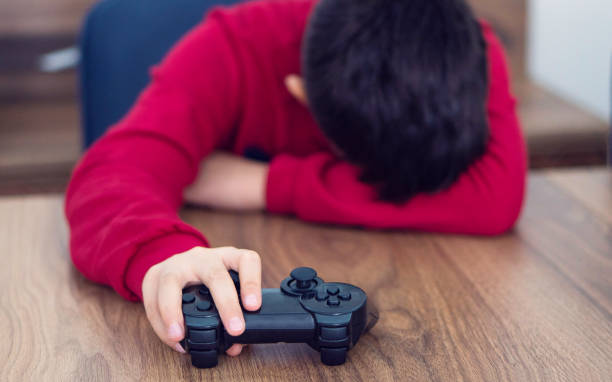Gaming has become a global phenomenon, captivating millions across all age groups and demographics. As the gaming industry grows exponentially, conversations about the relationship between gaming and mental health are becoming increasingly important. While gaming offers a multitude of benefits—from stress relief to cognitive development—it can also pose challenges if not approached mindfully.
In this blog post, we will discuss how gaming affects mental health, highlighting both the positive and negative impacts. We'll provide insights to help gamers and their loved ones maintain a healthy balance, ensuring gaming remains a source of enjoyment and wellbeing.
Positive Impacts of Gaming on Mental Health
1. Stress Reduction and Relaxation.
Gaming serves as a powerful outlet for stress relief. Engaging in immersive games provides an escape from daily pressures and anxieties, allowing players to relax and recharge. Many players find solace in exploring virtual worlds or completing objectives, which can create a distracting but healthy mental break.
2. Improved Cognitive Skills.
Various studies show that playing video games can improve mental functions such as problem-solving, spatial awareness, multitasking, and decision-making. Strategic games, puzzles, and role-playing games challenge players to think critically and adapt, sharpening skills that translate into everyday life.
3. Social Connection and Community.
Multiplayer and online games foster social interactions that can positively affect mental wellbeing. Players join teams, form friendships, and participate in supportive communities where they share experiences and build bonds. For individuals feeling isolated, gaming communities can provide essential connection and a sense of belonging.
4. Enhanced Mood and Motivation.
Many gamers experience a boost in mood and motivation as they achieve in-game goals and milestones. The sense of accomplishment and progress can increase self-esteem and offer positive reinforcement, especially for those struggling with low confidence or depression.
Negative Impacts of Gaming on Mental Health
1. Gaming Addiction.
While gaming can be enjoyable, excessive or compulsive play can lead to gaming disorder, recognized by the World Health Organization. Symptoms include impaired control over gaming, prioritizing gaming over other interests, and continued use despite negative consequences. Addiction can lead to social withdrawal, disrupted sleep, and decreased academic or work performance.
2. Increased Anxiety and Stress.
Competitive gaming and toxic online environments may sometimes increase stress and anxiety. High-pressure situations, negative interactions, or harassment can harm mental health. Furthermore, the drive to perform or maintain leaderboards can create unhealthy stress.
3. Physical Health Effects and Consequences.
Extended gaming sessions can contribute to physical health problems such as poor posture, eye strain, and lack of exercise, which, in turn, can negatively impact mental health. Fatigue, disrupted sleep patterns, and poor nutrition linked to excessive gaming may exacerbate stress and mood disorders.
4. Escapism and Avoidance.
Some individuals may use gaming to escape real-life issues without addressing underlying issues, leading to emotional avoidance. This can create a cycle of dependence where gaming replaces healthy coping mechanisms and social engagement.
Tips for Healthy Gaming Habits
To reap the mental health benefits of gaming while minimizing risks, consider the following strategies:
- Set Time Limits: Balance gaming with other life activities. Use timers or apps to manage session lengths.
- Prioritize Physical Health: Take regular breaks, stretch, and maintain good posture. Ensure adequate sleep, nutrition, and physical activity.
- Engage Socially: Play games that encourage teamwork and positive interaction. Take part in supportive gaming communities.
- Monitor Emotions: Be aware of how gaming makes you feel. If it increases anxiety or stress, take a break or switch to less competitive games.
- Seek Help When Needed: If gaming affects your daily responsibilities or mental health, reach out to professionals, counselors, or support groups.
The Role of Game Developers and Communities
The gaming industry is increasingly aware of mental health concerns. Developers are implementing features like time-play reminders, parental controls, and creating more inclusive environments to reduce toxicity. Communities are promoting positive interactions with initiatives against bullying and harassment, encouraging empathy, and supporting mental health awareness.
Conclusion
Gaming, when balanced and enjoyed responsibly, can be a powerful tool for enhancing mental health, offering benefits such as stress relief, cognitive improvement, social connection, and mood enhancement. However, it's important to recognize potential downsides, including addiction, increased anxiety, physical strain, and emotional avoidance.
By adopting healthy gaming habits and fostering supportive communities, players can maximize the positive impacts of gaming while protecting their mental wellbeing. If you or someone you know experiences negative effects from gaming, professional help is available and can make a significant difference.
Embrace gaming as a source of joy, challenge, and connection—while prioritizing your mental health for a fulfilling, balanced lifestyle.



